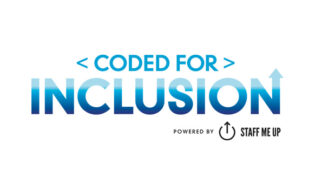Amazon Studios has released a comprehensive Inclusion Policy that extends its commitment to diversity, inclusion and equity for its content and productions, as well as a Playbook with guidelines for its collaborators.
The guides offer detailed and actionable recommendations as Amazon Studios continues to seek out stories and storytelling that amplify voices across race, ethnicity, nationality, sexual orientation, age, religion, disability (including mental health), body size, gender, gender identity and gender expression.
“Amazon Studios has long prioritized telling innovative and inclusive stories from a diverse range of creative talent, delighting our global audiences,” said Latasha Gillespie, executive head of diversity, equity and inclusion at Amazon Studios. “We wanted to move beyond good intentions to creating mechanisms that hold us accountable to a high bar. This Inclusion Policy and Inclusion Playbook adds important, additional depth and guidance for our internal teams and external partners to ensure we continue to advance our shared mission of amplifying the best creatives and content around the world.”
“With the establishment of our Inclusion Policy and Inclusion Playbook, Amazon Studios has committed itself to being a thought and action leader in the transformation of our industry,” added Jennifer Salke, head of Amazon Studios. “We know how much work there is to be done to improve representation both on-camera and behind the scenes, and it starts at home, with us. With clear directives and a commitment to accountability, these guides provide a path toward a more equitable future, both on- and off-camera.”
The Inclusion Policy covers four primary areas: developing stories and characters, hiring and production, reporting and documentation, and meeting goals.
Each film or series with a creative team of three or more people in above-the-line roles (directors, writers, producers) should ideally include a minimum of 30 percent women and 30 percent members of an underrepresented racial/ethnic group. This goal will increase to 50 percent by 2024.
It also includes casting actors whose identity (gender, gender identity, nationality, race/ethnicity, sexual orientation, disability) aligns with the character they will be playing.
The aim is to include one character from each of the following categories in speaking roles, with a minimum of 50 percent of these to be women: LGBTQIA+, person with a disability, and three regionally underrepresented race/ethnic/cultural groups. A single character can fulfill one or more of these identities.
The guidelines also include seeking at least three bids from vendors or suppliers on productions, one of which must be from a woman-owned business and one from a minority-owned business.
There is also an aim for pay equity across casting, behind the camera staff and crew, and for vendors and suppliers.
The Inclusion Playbook, meanwhile, puts in place practices to “minimize and disrupt biases,” providing specific guidance that will help everyone within and working with Amazon Studios to meet the expectations. The Playbook includes direction on how to make inclusive decisions, while telling authentic stories and hiring the best people for the job; knowledge of where to go for help, including tools to make inclusive decisions; tools to identify criteria for making creative choices, leading to balanced, consistent and informed decisions; and ways to foster curiosity and ask questions to disrupt the status quo about “how things are done.”
“Frankly, the outcomes of DEI work within the entertainment industry have not been swift or sweeping. In part, that can be attributed to disingenuous approaches to address the systemic barriers to entry that have long plagued Hollywood,” said Dr. Stacy Smith of USC’s Annenberg Inclusion Initiative, with whom Amazon Studios worked closely. “But now, Amazon Studios has created a comprehensive new blueprint that will change Hollywood by elevating those who have historically lacked access. I’m immensely proud of this new policy and I know it will be a gamechanger throughout an industry often resistant to real change.”






